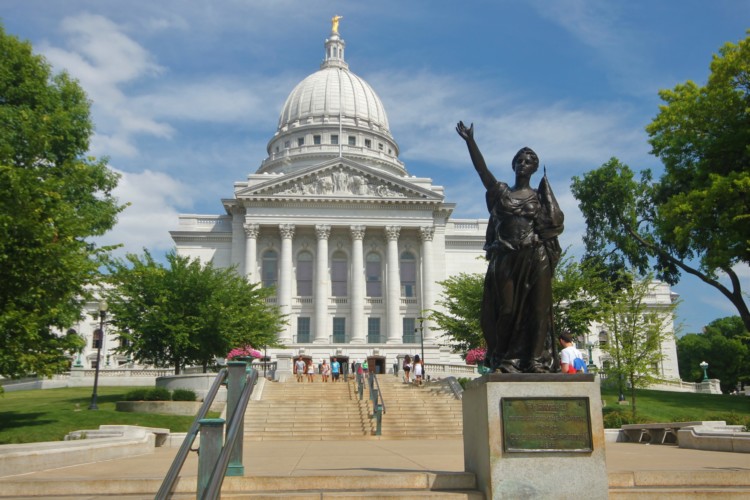Although many individuals are working to leverage research evidence in order to inform policy and practice, we need more systematic studies of these efforts. We want to know what it takes to get research evidence used and what happens when it is used.
Through our focus on improving the use of research evidence, we are looking to fund studies of ways to bolster organizations’ and individuals’ capacity to consume and use research evidence. We also want investigations that build additional knowledge about what incentives help researchers prioritize and pursue decision makers’ needs and questions. In addition, we welcome studies that examine how and under what conditions efforts to develop trusting relationships, sustained partnerships, and other processes connect the research and policy and practice worlds in ways that benefit decision making and youth outcomes. In sum, we are looking for projects that systematically study how to create the conditions that foster the production of relevant research and its routine use, as well as studies that examine what happens when research is used.
Forming a research question
Applicants may choose either to build on the rich descriptions and working hypotheses that emerged from earlier work or to draw on empirical and theoretical work from other areas. Take the example of research-practice partnerships. As part of our focus on improving the use of research evidence, we’d be interested in projects that seek to learn whether the co-production of research between researchers and agency administrators leads researchers to study questions of greater relevance to decision makers. Staying with this example, we’d also be interested in learning whether involvement in co-production processes leads decision makers to have a deeper understanding of research evidence and consider it more often in daily decisions and strategic planning.
Alternatively, a study might extend work from a knowledge mobilization effort and investigate the conditions under which interventions that are designed to help decision makers appraise research improve their appropriate use of research evidence. Other projects may draw on approaches from sociology of knowledge, political science, communications and decision making theory, implementation science, improvement science, or science and technology studies.
At the same time, we also seek studies that will expand the evidence base about the value of using research evidence in decision making. There is a long standing assumption that if high quality research evidence is used it will improve decision making. We want to know whether and under what conditions using high-quality research improves decision making and youth outcomes. For example, do policies that mandate the use of programs with evidence of effectiveness actually increase the use of research-based approaches, and in turn improve youth outcomes?
Conceptualizing, and measuring research use
Investigators will need to demonstrate sophisticated measures of the use of research evidence. Letters of inquiry will need to provide a description of how the use of research evidence will be operationalized, assessed, and analyzed. This will require clear ideas about what constitutes the research evidence being used and a rich conceptualization of research use. Cynthia Coburn, for example, recently shared thoughts about some of the considerations and implications of studying conceptual uses of research evidence. Letters will also need to include enough details for reviewers to discern how research use will be assessed-whether observed, coded in documents, noted in discourse, surveyed, or probed in interviews. In some cases, it may be appropriate to use, adapt, or supplement existing measures, such as those described in Langer, Tripney, and Gough’s recent review entitled “The Science of Using Science” and Larry Palinkas’s structured interview on the use of research evidence. Another resource is a new survey about the use of research use by practitioners that was just released by the National Center for Research in Policy and Practice. Other cases will require the development of new measures. In all cases, methodological expertise is recommended. It is our thought that deep thinking about measurement issues and how they might track changes in research use over time will enhance theory and empirical evidence on the use of research evidence.
Assessing your project’s fit
We seek proposals that represent a strong fit with the Foundation’s interests. To help you assess your project’s fit, here are three reflections from our recent review of 55 letters of inquiry that responded to our call on improving the use of research evidence.
- Prioritize the research activities.
The William T. Grant Foundation supports research, but not the change strategy itself. Letters of inquiry should specify research questions about what it takes to get research used. Questions might concern the effectiveness of a strategy to improve the use of research evidence, the identification and testing of mechanisms to improve use, or an exploration of the conditions under which strategies enhance the use of research evidence. Several of the letters we received, however, sought funding to promote research use, but not an empirical study to examine that effort; the research was secondary to change effort. For example, requests for funds to embed a researcher in a practice organization would not fit our interests. Successful applicants described the investigation of strategies to promote research use. For example, they might propose examining whether embedding a researcher in a practice organization actually fosters greater use of research, and if so, through what mechanisms. In this example, the letter fit because of its clear articulation of a researchable question. Such letters also included a strong research design to pursue the questions. - Build a compelling case that new knowledge will be generated about ways to improve the use of research evidence.
If studying a change strategy, letters of inquiry need to justify why the change strategy is worth studying. This will require providing adequate detail about the change strategy and a rationale for why the change strategy would improve the use of research evidence. The rationale would draw from prior theory and empirical evidence on or related to the use of research evidence. A compelling theoretical and empirical rationale is one that convinces reviewers that the change strategy is likely to enhance the quality or extent of research use. It would also challenge or extend existing theory, and demonstrate a mastery of prior findings relevant to the change strategy. By strategies, we mean systematic and replicable activities or policies intended to improve the use of research evidence or to maximize its benefits on decision making and youth outcomes. - Focus on research use by state and local decision makers and intermediaries.
Decision makers in state and local departments of education, child welfare, and juvenile justice directly influence the frontline practices that affect youth outcomes. For this reason, our Foundation is especially interested in the use of research evidence by state and local decision makers, intermediaries, and middle management. We recognize their role in deciding which programs, practices, and tools to adopt; deliberating ways to improve existing services; shaping the conditions for implementation; and making resource allocation decisions. We rarely fund research that is solely focused on front line practitioners’ use of research evidence.
If you share our interest in what it takes to get research used, and what happens when it’s used, we invite you to help build theory and empirical evidence about these important questions.





